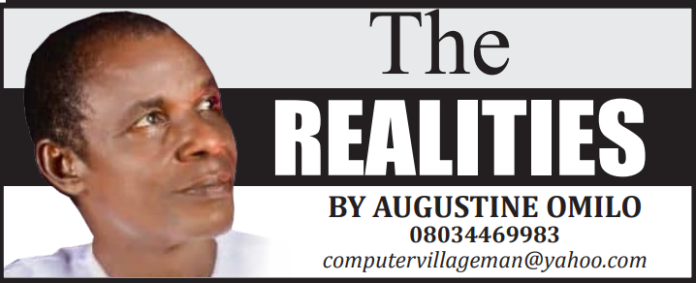The Cambridge English language dictionary defines noise as; “a sound or sounds, especially when it is unwanted, unpleasant, or loud”. Noise normally makes it impossible for someone to hear or properly receive messages that are being passed from other persons or sources of information dissemination. No matter how important talks are, when they are presented by different persons at the same time and even the same way, they become noise, especially when people appear not to be hearing each other.
An example of a society where noise-making has become the order of the day is Nigeria. The hardship in the land occasioned by the attempts being made by President Bola Ahmed Tinubu to reform the economy is beginning to make every Nigerian a professional in all fields of human knowledge, especially economics, security, finance and governance. The continued silence by concerned authorities on complex sensitive matters requiring explanations to the common folks has done a lot of damages to the image of the governments at various levels.
Every citizen seems to know the challenges facing Nigeria and the solutions that can resolve them. But the anger in the land makes all the people talk at the same time. Even the federal government has remained resolute on saying the same thing in different ways, to the continued confusion of the citizens who no longer hears or are tired of hearing what the pronouncements from government represent in the different areas of their difficulties.
The worst hit areas in these noise-making episodes are the economy, insecurity and corruption. While many people are calling on Mr. President to reverse himself on the fuel subsidy removal, the government remains bent on rolling out additional measures it feels will do the needful in bringing normalcy to the situation. But the plain truth is that; if a policy pronouncement brought negative changes to an economic situation, it is only logical to expect policy reversal with known theories to bring better results, not mere pronouncements like the earlier one that caused the problems in the first place.
One of the economic reasons why the Buhari/Idiagbon military regime was overthrown by General Ibrahim Babagagida in 1985 was the way the later handled the issue of commodity scarcity at the time. The federal government forcefully opened the warehouses of companies and auctioned out their goods to the public. Apart from infringing on the rights of these organisations to sell their goods in manners to ensure that they made profits and remained in business, they incurred losses that resulted into bankruptcy and total business closures. Those that had foreign link left the country entirely. Babaginda tried to no avail in reversing the military economic model of Buhari and Idiagbon. He invited professionals like Dr. Chu S. P Okongwu, Dr. Onalapo Soleye and Dr. Kalu Idika Kalu to undo the damages already done. But, it was rather too late. Since then till date, the nation’s economy has not ‘known peace’.
Tinubu’s policies brought the economic pains. Let him continue to consult widely for the needed counter policies.
The Nigerian professionals should begin to speak up, one person at a time with a view to helping the president as 2027 – the year of possible change of guards approaches.
On corruption, the orientation agencies should begin to do more on educating citizens on things that actually constitute corruption. The pot calling the kettle black as we presently have now will continue to make the fight against it a mirage. Everyone must be made to understand that the parent who aids their children in passing the final primary six examinations is as guilty as the people that are often accused of official corruption. Once the seed of corruption is planted into the life of a young person in primary, secondary or tertiary school, it will begin to grow inwardly until such classes of Nigerians enlist into public service where manifestations become inevitable.
The constitution of the federation makes the security of lives and properties the primary responsibility of government. It acts along this line, using the security agencies. The president should be allowed to weigh all the options available to him as per the suggestions coming from the electorate on security.
Thank God the president spoke to the people as the national protest progressed into Day 4. While he spoke, Nigerians listened. It now behooves him to listen attentively to the reactions of the people after the speech. Though, the president’s address was worth listening to, it failed to directly address the issues raised by the protesters. He dwelt more on the things government has done or is still doing. Ironically, these are issues that formed the basis for the protests to a large extent.
The protesters on the other hand are yet to be seen handing over their documented grievances to any of organ of government. Of course, this makes it look as if the president only reacted based on hearsays.
Meanwhile, let the discussions continue. But, all of must not talk at the same time. Doing so will keep the country in a state of continued noise. After all, what Nigerians are seeking is an economic solution to mitigate hunger, insecurity and corruption. The best antidote to these remains honesty as a policy to be implemented by both the government and the governed.


